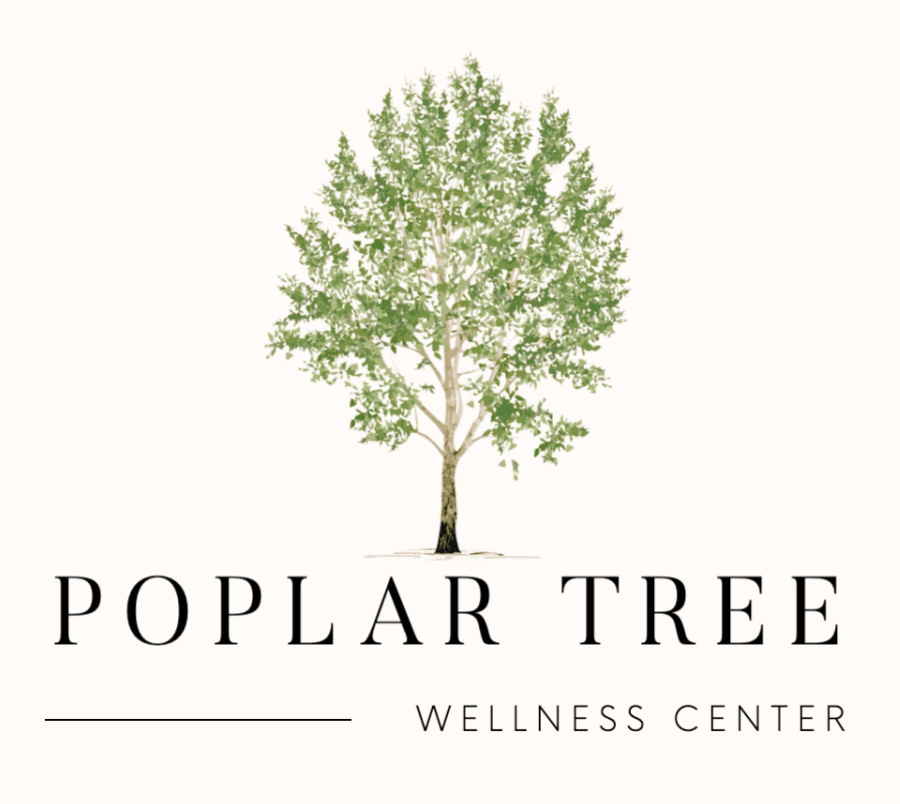Reiki: A Holistic Approach to Energy Healing
Reiki, an ancient Japanese practice, is a form of therapy that focuses on channeling universal life force energy to promote healing and balance within the body and mind.

The term "Reiki" is derived from two Japanese words: "Rei," meaning "higher power," and "Ki," meaning "life force energy." Together, they signify a life-force energy guided by a higher power, used by practitioners to facilitate natural healing.
This holistic approach addresses the whole person—body, mind, and spirit—making it a truly integrative therapy for overall health and wellness.
Key Takeaways
- Reiki is a holistic healing practice that channels universal life force energy.
- It addresses the body, mind, and spirit for overall wellness.
- Reiki is based on ancient Japanese principles and techniques.
- Practitioners use their hands to facilitate the flow of life force energy.
- Reiki is recognized for its gentle yet effective approach to health.
Understanding Reiki and Its Origins
Dr. Mikao Usui's development of Reiki in the 1920s marked the beginning of a unique energy healing modality. Reiki is based on the principle that energy can be channeled to promote healing and balance within the body.
The Meaning Behind Reiki
The term "Reiki" can be broken down into two Japanese words: "Rei," meaning universal, and "Ki," meaning life force energy. Thus, Reiki translates to "universal life force energy." This concept is central to understanding how Reiki works as a therapy that aims to restore balance and promote health.
Japanese Roots and Historical Development
Reiki originated in Japan during the 1920s, founded by Dr. Mikao Usui. The historical development of Reiki is deeply rooted in Japanese spirituality and healing techniques. Usui's approach was influenced by traditional Japanese practices and Buddhist principles.
Core Principles of Reiki Practice
The practice of Reiki is guided by five core principles that serve as both spiritual precepts and practical guidelines. These principles emphasize living in the present, cultivating gratitude, honesty, kindness, and diligent self-improvement. Practitioners are encouraged to apply these principles in their daily lives to foster a deeper connection with themselves and others.
| Principle | Description |
|---|---|
| Just for today, do not worry | Encourages living in the present moment |
| Just for today, do not anger | Promotes emotional balance and peace |
| Honor your parents, teachers, and elders | Fosters respect and gratitude |
| Earn your living honestly | Encourages integrity in one's actions |
| Show gratitude to everything | Cultivates a sense of appreciation and connection |
How Reiki Works as Energy Healing
The practice of Reiki involves the transfer of universal life force energy through the hands of a trained practitioner. This form of healing aims to restore balance to the body, mind, and spirit by channeling and balancing the recipient's energy.
The Concept of Life Force Energy
Reiki is based on the idea that a universal life force energy flows through all living things. This energy is believed to be essential for maintaining health and well-being. When this energy is low or blocked, it can lead to various physical, emotional, or mental issues.
Energy Channels and Blockages
In Reiki, the flow of life force energy is crucial. Practitioners believe that this energy flows through specific channels or pathways in the body. Blockages or imbalances in these channels can lead to health issues. During a session, the practitioner works to release these blockages and restore the natural flow of healing energy.
| Energy Channel | Associated Health Benefits |
|---|---|
| Head and Crown | Spiritual connection, mental clarity |
| Heart and Chest | Emotional balance, heart health |
| Abdomen and Lower Back | Digestive health, stress relief |
The Role of the Practitioner
A Reiki practitioner serves as a conduit for the universal life force energy. Through specialized training and attunements, they develop the ability to sense energy imbalances and direct healing energy where it's most needed. Practitioners maintain a meditative state during sessions, setting aside their ego and personal will to allow the energy to flow according to the recipient's needs.
Understanding the practitioner's role helps explain why Reiki treatments can vary in experience from person to person, as the energy responds uniquely to each individual's needs
The Reiki Experience: What to Expect in a Session
A Reiki session offers a unique opportunity to experience deep relaxation and energy balance. As you prepare for your first appointment, understanding the process can enhance your overall experience.
Before Your First Appointment
Before your first Reiki session, it's natural to feel a mix of curiosity and anticipation. Typically, you'll be asked to fill out a brief health questionnaire to help the practitioner understand your needs. Arriving a few minutes early allows you to get comfortable and relaxed before the session begins.
During a Typical Reiki Session
During a typical Reiki session, you'll lie on a comfortable treatment table, fully clothed. The practitioner will place their hands gently on or above specific positions on your body, serving as a conduit for the universal life force energy. This energy promotes balance and harmony within your body, supporting the healing process. Sessions usually last between 45 to 60 minutes, allowing you to fully immerse in a state of deep relaxation.
After-Effects and Integration
After the session, many people report feeling a deep sense of calm and relaxation, often describing it as waking from a restorative nap. As one recipient shared, "I felt a sense of calm and peace, and my mind felt a lot clearer." It's common to experience improved sleep quality and reduced pain in the days following a session. To maximize the benefits, it's recommended to stay hydrated, rest if needed, and perhaps journal your experience. This integration period, which can last 24-48 hours, is crucial for allowing the energy to fully support your overall health and healing journey.
| Common After-Effects | Description |
|---|---|
| Deep Relaxation | A profound sense of calm and reduced stress levels |
| Improved Sleep | Better quality sleep and enhanced restfulness |
| Mental Clarity | Increased focus and a clearer mind |
| Emotional Release | A sense of lightness and release from emotional burdens |
By understanding what to expect during and after a Reiki session, you can better integrate its benefits into your daily life, enhancing your overall well-being.
Exploring the Benefits of Energy Healing Through Reiki
Reiki is a powerful modality that promotes balance and harmony in the body, mind, and spirit. By harnessing the power of energy, Reiki provides a unique approach to health and wellness. The practice is centered around the idea that the free flow of energy is crucial for maintaining overall well-being.
Physical Health Benefits
The physical benefits of Reiki are multifaceted. It is often used to treat specific conditions by promoting relaxation and reducing pain. Many people find that Reiki helps to alleviate symptoms associated with chronic illnesses, enhancing their overall quality of life. By boosting the body's natural healing processes, Reiki supports the recovery process and fosters a state of optimal health.
Mental and Emotional Wellness
Beyond its physical benefits, Reiki has a profound impact on mental and emotional wellness. It helps to reduce stress and anxiety, promoting a sense of calm and tranquility. Regular Reiki sessions can lead to improved emotional balance, enabling individuals to navigate life's challenges with greater ease and resilience. As a result, people often report feeling more grounded and centered in their daily life.
Spiritual Connection and Growth
Reiki also offers a pathway to deeper spiritual connection and growth. Many practitioners and recipients report enhanced intuition and spiritual insights during and after sessions. This modality can facilitate a heightened sense of purpose and meaning, allowing individuals to connect with something greater than themselves. For those on a spiritual journey, Reiki can serve as a complementary practice that enhances their existing spiritual disciplines, such as meditation or prayer.
As people continue to explore the benefits of Reiki, it becomes clear that this practice offers a holistic approach to health and well-being. By promoting balance and harmony across the body, mind, and spirit, Reiki enables individuals to achieve a more integrated and conscious relationship with themselves. As a result, many people use Reiki as a tool for enhancing their overall quality of life and fostering a deeper sense of spiritual awareness.
Reiki and Other Energy Healing Modalities
Reiki, while unique in its approach, is part of a broader spectrum of energy healing practices. As people seek holistic approaches to health, combining different energy therapies has become increasingly popular.
Comparing Reiki to Acupuncture
Both Reiki and acupuncture aim to restore balance to the body's energy. While acupuncture involves inserting needles into specific points to stimulate energy flow, Reiki uses the practitioner's hands to channel and balance the energy. Both modalities can be used complementarily to enhance the body's natural healing processes.
Therapeutic Touch and Quantum Touch
Therapeutic Touch and Quantum Touch are other energy healing modalities that, like Reiki, focus on balancing the body's energy. Therapeutic Touch involves the practitioner using their hands to clear, balance, and energize the patient's energy field. Quantum Touch uses the breath and intention to create a powerful healing energy. These modalities, while different, share the common goal of promoting well-being through energy balancing.
Integrating Multiple Energy Therapies
Many practitioners and recipients find value in combining multiple energy healing modalities. For instance, using Reiki for overall balancing and specific modalities like crystal healing for targeted energy work can create synergistic effects.
"The integration of various energy therapies can lead to a more comprehensive approach to health and wellness."
As the trend of integrative wellness centers grows, the availability of multiple energy healing options alongside conventional treatments is becoming more common, creating truly holistic care plans.
The Science Behind Reiki: Research and Evidence
While Reiki is often viewed with skepticism, emerging research aims to shed light on its potential benefits. The scientific community continues to explore the validity of Reiki as a form of energy healing, with a growing body of evidence supporting its efficacy.

Current Scientific Studies
Recent studies have investigated the effects of Reiki on various physiological and psychological parameters. A study published in a reputable journal found that Reiki significantly reduced stress and anxiety in patients undergoing surgery. Other research has explored the impact of Reiki on pain management, sleep quality, and overall well-being.
- Reiki has been shown to decrease cortisol levels, indicating a reduction in stress.
- Some studies suggest that Reiki can improve mood and reduce symptoms of depression.
- The mechanisms behind Reiki's effects are not fully understood, but it is believed to involve the transfer of energy.
Clinical Applications in Healthcare
Reiki is being increasingly integrated into healthcare settings, including hospitals and clinics. It is used as a complementary therapy to support conventional treatments for various conditions, including chronic pain, cancer, and mental health disorders. Some medicine practitioners recognize the potential benefits of Reiki in enhancing patient outcomes and improving overall healthcare.
Limitations and Future Research Directions
Despite the promising findings, there are significant limitations to the current research, including small sample sizes and methodological inconsistencies. Future studies should aim to address these limitations and explore new avenues, such as the application of energy medicine principles to Reiki research. By advancing our understanding of Reiki's effects and mechanisms, we can better integrate it into mainstream healthcare.
Reiki at Poplar Tree Wellness Center

Experience the benefits of Reiki at Poplar Tree Wellness Center, where we combine traditional energy healing with modern healthcare practices. Our highly trained practitioners work collaboratively with our diverse team of mental health professionals to create personalized care plans.
Reiki therapy is offered as part of our comprehensive approach to mental health and physical wellness, complementing our evidence-based medical treatments. During a session, clients can expect a peaceful and restorative experience.
Our unique approach addresses the whole person—body, mind, and spirit—making us one of the few clinics in Sussex County to offer such a comprehensive range of both conventional and complementary treatments for various health conditions. To learn more about our Reiki services or schedule a consultation, please call us at (201)-727-3241.
Conclusion
The journey through Reiki's principles and practices reveals its potential as a complementary therapy in modern healthcare. Reiki represents a gentle yet powerful approach to energy healing that honors the body's innate wisdom and ability to restore balance when properly supported.
Throughout this article, we've explored how Reiki works with the body's energy system to promote physical healing, emotional balance, mental clarity, and spiritual growth. Many recipients report significant benefits, including stress reduction, improved sleep, pain relief, and enhanced overall well-being.
As part of a holistic approach to health, Reiki reminds us that healing involves more than just addressing physical symptoms—it requires attention to the interconnected aspects of body, mind, and spirit. At Poplar Tree Wellness Center, we're committed to providing evidence-based care that includes both conventional medicine and complementary approaches like Reiki, tailored to each individual's unique needs and healing journey.
FAQ
What is Reiki and how does it work?
Reiki is a form of Traditional Chinese Medicine that involves the transfer of life force through the hands to promote health and well-being. It works by releasing blockages in the body's energy channels, allowing the life force to flow freely
What can I expect during a Reiki session?
During a typical Reiki session, you will lie on a massage table, fully clothed, while the practitioner places their hands on or above specific positions on your body. The session is usually relaxing and calming, and may help to relieve pain and promote a sense of mental health and well-being.
Is Reiki a substitute for medical treatment?
No, Reiki is not a substitute for medical treatment. While it may be used in conjunction with healthcare to promote health and well-being, it is not a replacement for conventional medical treatment. If you are experiencing health conditions, you should consult with a qualified healthcare professional.
Can Reiki help with anxiety and stress?
Yes, Reiki may help to reduce anxiety and stress by promoting relaxation and calming the mind and body. Regular Reiki sessions may also help to improve sleep quality and overall mental health.
Is Reiki scientifically proven?
While there is some scientific evidence to support the benefits of Reiki, more research is needed to fully understand its effects on the body and mind. Some studies have shown that Reiki may help to reduce pain, improve symptoms of cancer, and promote overall health and well-being.
How often should I receive Reiki sessions?
The frequency of Reiki sessions depends on your individual needs and goals. Some people may benefit from regular sessions, such as weekly or monthly, while others may only need occasional sessions. Consult with a qualified Reiki practitioner to determine the best schedule for you.



